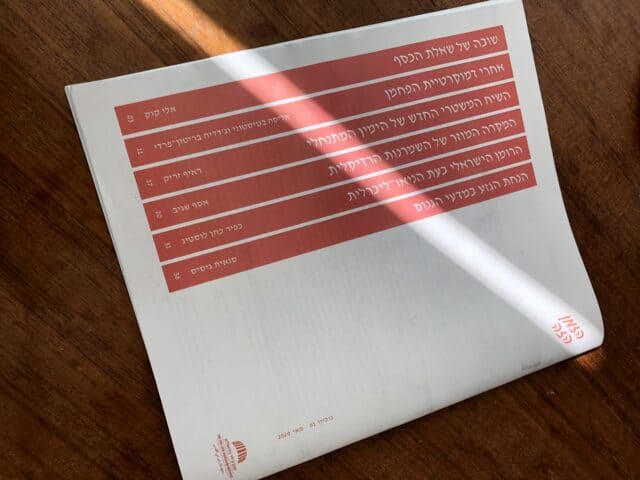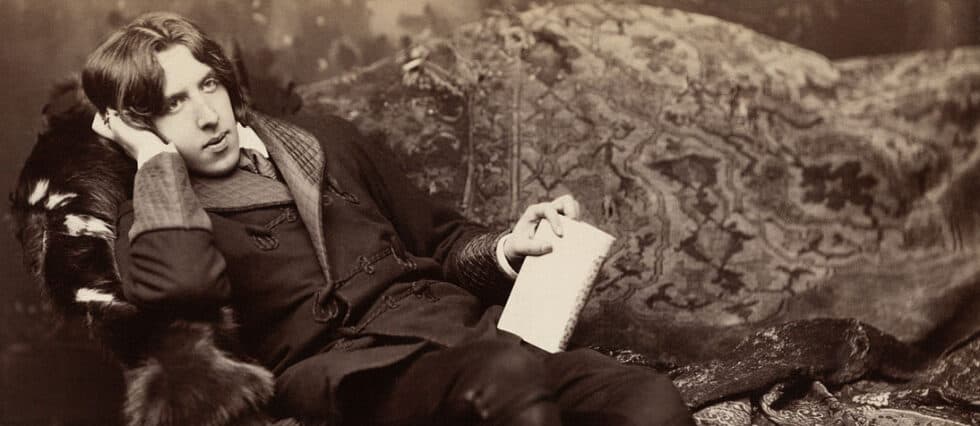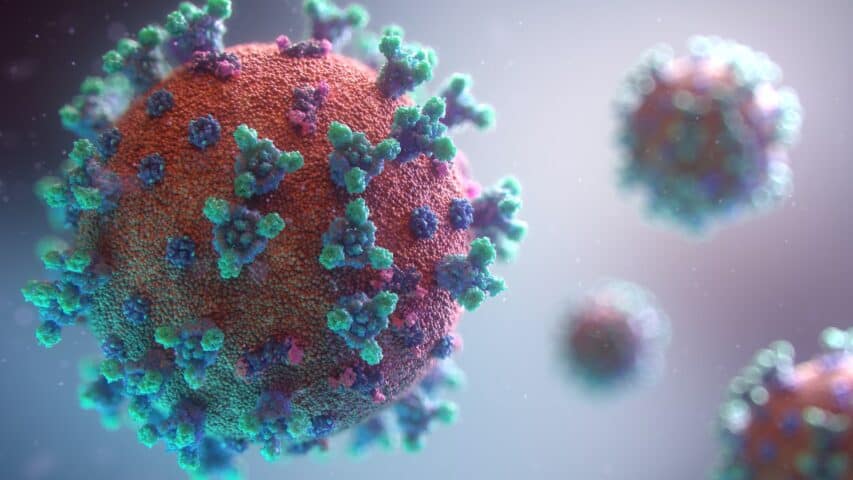Gender equality in times of coronavirus
Daniela Charbit | 28.12.2020 | Photo: From the Gender Index Report 2020
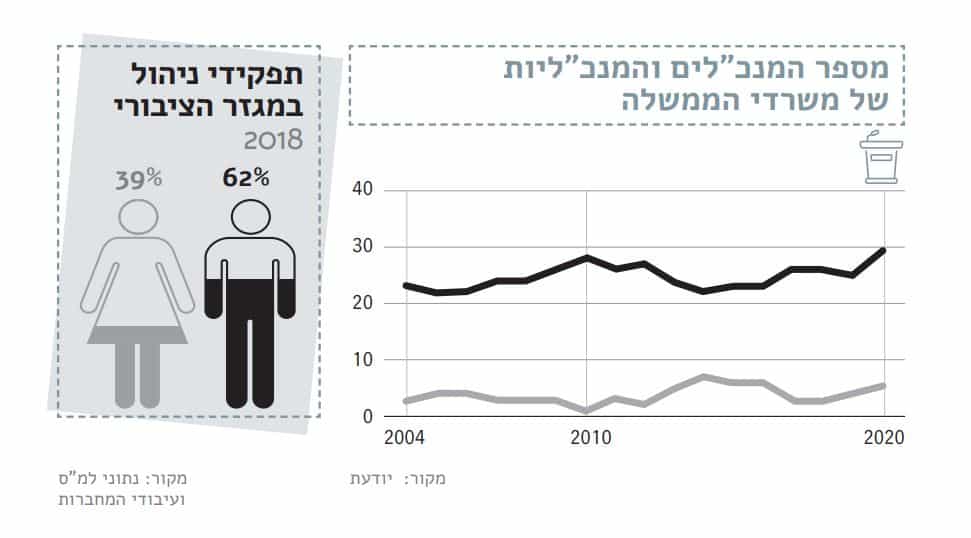
The coronavirus pandemic changed the world order and the way we all work. Working from home became the plight of both women and men (in relevant professions, of course). One might have thought that this new way of work would at least somewhat balance the gender gap in care-work and house-work, which we term “invisible work” – bacause they are not paid for, but that was not the case.
Throughout the months of COVID-19, it turns out, women still bear most of the responsibility for the household and family care. Thus, the barrier to their full and equal integration into the labor market is maintained. In fact, the data shows that during lockdown, in Israel 60% of the housework was performed by women compared to 40% by men, and 63% of the child and family care was performed by women compared to 37% by men. The situation in other countries – for example, the UK, Germany, and the US – is similar.
How do we know? Because this is the eighth year we are publishing The Gender Index by WIPS – The Center for the Advancement of Women in the Public Sphere at the Van Leer Jerusalem Institute. The index is a powerful measurement tool that examines changes in the status of women and men in Israel over time in different areas of life. In the 2020 Gender Index a special spotlight is cast on the social and economic implications of COVID-19 on women and men in Israel.
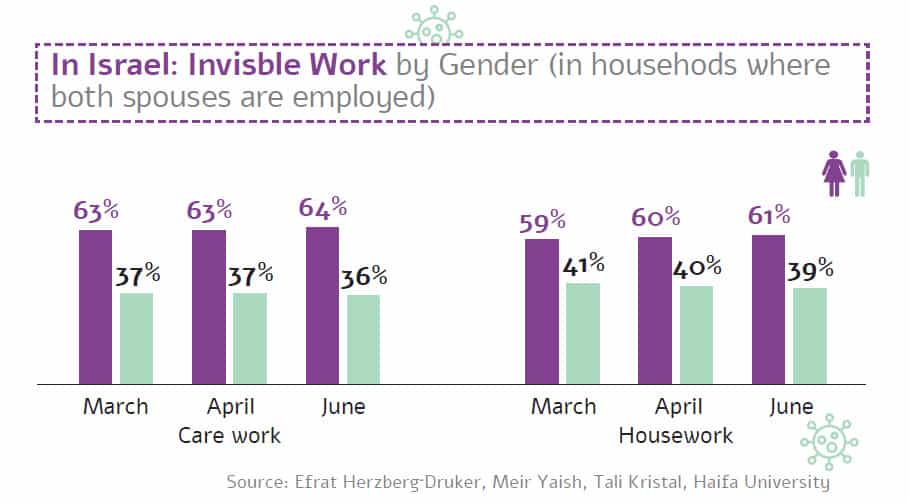
This year we launched the Index in a virtul conference, with the participation of Prof. Shai Lavi, Prof. Naomi Chazan, Hadass Ben Eliyahu, Dr. Hagar Tzameret and Prof. Hanna Herzog of the Van Leer Jerusalem Institute. They spoke with Dr. Jolanta Reingarde, director of the European Institute for Gender Equality (EIGE); Dr. Yael Hasson, Director of Gender Equality at the Adva Center; MK Meirav Cohen, Minister for Social Equality and Elderly Citizens; and MK Aida Touma-Sliman of Hadash – The Joint List.
The main finding of the Index is that gender gaps exists in all walks of life. For example, in the Culture domain, radio stations in Israel play men singers much more often than women singers: the rate of women singers ranges between 17-23%. In theater, women comprised only 25% of directors and 40% of actors. In the world of competitive sports, the number of women athletes registered in professional sport associations was 23.3%. These data are affected by the inequality in the funding and encouragement of women in these professions.
The deepest gender gap is in the area of political and economic power which is dominated by men. It is therefore recommended to apply a strategy of gender mainstreaming in all areas, and to promote a policy of equal representation of women from diverse social groups at all decision-making forums. Additional effective tools are the integration of gender-sensitive policies and gender sensitive evaluation of policy consequences. As Dr. Jolanta Reingarde said at the launch event, such tools have proven themselves in countries such as Italy and Luxembourg.
For further information about advancing gender equality, please visit the website of Yoda’at/She Knows – Israel's Gender Knowledge Center, which provides gender statistics, academic sources, articles, lectures, and much more.
In the Hebrew press and social media

